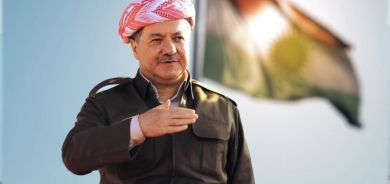Drone Attack on El Fasher Hospital Kills 70, WHO Condemns "Violation of International Law"

A devastating drone attack on the Saudi Teaching Maternal Hospital in El Fasher, the capital of North Darfur state, has killed approximately 70 people and injured 19 others, according to World Health Organization (WHO) Director-General Tedros Adhanom Ghebreyesus. The hospital was the only functional medical facility in the western Sudanese city, which has been under siege since May 2024.
In a post on X (formerly Twitter) on Sunday, Tedros condemned the attack, stating, "The attack comes at a time when access to health care is already severely constrained in the state due to the closure of health facilities following intense bombardments." He emphasized the urgent need for peace, adding, "Above all, Sudan's people need peace. The best medicine is peace."
Local authorities reported the attack on Saturday, confirming a similar death toll. The Saudi Teaching Maternal Hospital, a critical lifeline for the region, has been a key provider of maternal and emergency care amid the ongoing conflict. Saudi Arabia's Foreign Ministry denounced the strike as "a violation of international law," calling for accountability and an end to the violence.
Who is Behind the Attack?
Local officials have blamed the attack on the Rapid Support Forces (RSF), a rebel paramilitary group engaged in a brutal conflict with the Sudanese military and allied forces. The RSF has controlled nearly all of Darfur since April 2023 and has been accused of widespread human rights violations.
Clementine Nkweta-Salami, the UN's humanitarian coordinator for Sudan, revealed that the RSF had issued a 48-hour ultimatum to the Sudanese Armed Forces (SAF) to vacate El Fasher. The city has been a focal point of the conflict, with the RSF imposing a siege since May 2024. However, recent advances by SAF-aligned groups have pushed back against the RSF's control.
Under the leadership of General Abdel Fattah al-Burhan, the Sudanese military has made significant gains against the RSF in recent months. Despite this progress, the conflict has plunged Sudan into a humanitarian catastrophe, with tens of thousands killed, over 12 million displaced, and hundreds of thousands facing famine.
International Response and Sanctions
Earlier this month, the United States imposed sanctions on both General al-Burhan and RSF leader Mohamed Hamdan Dagalo, also known as Hemedti, in an effort to pressure the warring parties to end the violence. The sanctions reflect growing international concern over the escalating crisis and its devastating impact on civilians.
According to the Integrated Food Security Phase Classification initiative, backed by the United Nations, more than 24.6 million people—nearly half of Sudan's population—are facing "high levels of acute food insecurity." The ongoing conflict has crippled infrastructure, disrupted supply chains, and left millions in desperate need of humanitarian aid.
A City Under Siege
El Fasher, once a bustling hub in North Darfur, has become a symbol of the broader humanitarian crisis in Sudan. The city's residents have endured months of shortages, bombardments, and now the loss of their only functioning hospital. The attack on the Saudi Teaching Maternal Hospital has further exacerbated the suffering, leaving countless lives at risk.
As the international community calls for an end to the violence, the people of Sudan continue to bear the brunt of a conflict that shows no signs of abating. The WHO and other humanitarian organizations are urging immediate action to protect civilians and restore access to essential services.
For now, the people of El Fasher and Sudan as a whole remain caught in the crossfire of a devastating civil war, with peace and stability seeming increasingly out of reach.















